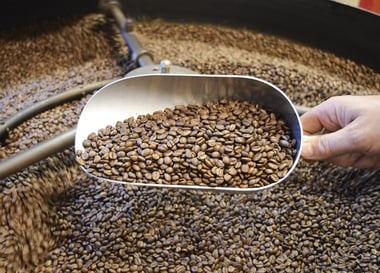 Though humankind has been enjoying coffee for centuries and beer for millennia, recent decades have seen a renewed interest in the small-scale production of both. If you’ve always wanted to venture into the world of small-batch coffee roasting or craft brewing, now’s a great time to do it!
Though humankind has been enjoying coffee for centuries and beer for millennia, recent decades have seen a renewed interest in the small-scale production of both. If you’ve always wanted to venture into the world of small-batch coffee roasting or craft brewing, now’s a great time to do it!
There’s so much that goes into preparing a microroasting or a microbrewing facility, not the least of which includes making sure your building complies with USDA regulations.
If your building already has a concrete floor, an epoxy or urethane coating is a simple and effective flooring solution that will help you stay in compliance.
How do epoxy and urethane coatings comply with USDA requirements?
The USDA requires floors in food production areas be “durable, easily cleaned materials, and be impervious to moisture.” Here’s why an epoxy or urethane coating (or a combination of the two) makes the grade:
Durability
Epoxy floor coatings are applied in two parts (a polyepoxide resin and a curative) that chemically bond together to create an extremely strong surface. Urethane coatings undergo a similar curing process to create a hard, transparent protective layer. Both offer superior resistance to scratches and impacts from dropped equipment, and each can last for several years before needing re-application.
Ease of cleaning
A floor coating’s smooth surface lacks the grout or other surface inequalities that trap debris or dirt, making it easier to sweep and mop. Epoxy in particular also stands up well to the chemical detergents and scalding water needed for proper equipment sanitation.
Imperviousness to moisture
Since concrete is actually a porous substance, untreated concrete can soak up spills and potentially create an environment where bacteria and viruses can grow. Both epoxy and urethane coatings can block moisture, keeping it on the surface of the floor where it can safely be mopped up.
Slip resistance
Though not required by the USDA, epoxies can also have texture added to create a slip-resistant floor—especially important when dealing with liquids that are likely to spill.
If you’d like to learn more, check out our full explanation of USDA-approved flooring. If you’re located in the Southeastern U.S., you can also schedule a free consultation with one of our flooring experts to help you find a customized solution for your small business.

